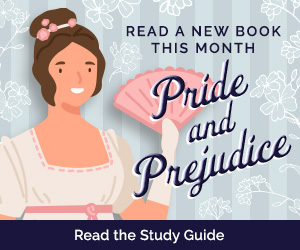In The Epic of Gilgamesh, Gilgamesh, despite being semi-divine, is forced to grapple with his own mortality, facing a profound question: what is the significance of human life, when all people must die? The epic offers responses to that question, ultimately concluding that although no one escapes death, people can enjoy life in all of its ephemerality, and perhaps even more so because of it.
The prelude introduces Gilgamesh, recaps the narrative, and hints at the answers it offers about mortality. Discontent among Uruk’s people with their king sets up the inciting incident. The gods respond to the people’s complaints by creating Enkidu, providing a worthy opponent who is destined to become Gilgamesh’s companion. They send dreams to Gilgamesh to prepare him to meet this man. Enkidu’s story has its own inciting incident: when he becomes sexually experienced, he loses his home in the wilderness and, now lonely, seeks out the king. The violent clash of these combatants results in a friendship from which both draw vitality and meaning.
As events of the rising action begin, Enkidu speaks of Humbaba, triggering Gilgamesh’s desire for adventure and fame. Gilgamesh reasons that while companionship enriches life, fame hedges against mortality. Heroes are celebrated after death for their achievements. Despite Enkidu’s misgivings and the elders’ warnings, the heroes arm themselves, make offerings, and begin their arduous journey. When one man’s strength flags, the other encourages his friend, and so they reach Humbaba’s forest. The stakes are high: Shamash, the sun god who assists the heroes, stands against Humbaba, the demon associated with darkness and evil. Light and life take on destruction and death in the confrontation, with Gilgamesh representing divinity and humanity and Enkidu representing humanity and nature.
When dreams of death trouble Gilgamesh before the confrontation with Humbaba, Enkidu interprets them as omens of victory, so the heroes approach the sacred mountain, where they anger Humbaba by cutting sacred cedars. The battle is fearful, even with Shamash’s help. When Humbaba pleads for mercy and invokes his divine parentage, Enkidu persuades the wavering Gilgamesh to secure his immortal fame by killing Humbaba. These events push the epic toward its fateful climax, when the heroes pay a price for the fame they gain by destroying the god Enlil’s offspring.
After Gilgamesh and Enkidu return victoriously to Uruk, Gilgamesh angers Ishtar when he refuses to become her lover and justifies it by outlining her treacherous treatment of past lovers. Ishtar sends the Bull of Heaven to punish Uruk for its king’s pride. Enkidu and Gilgamesh destroy the bull and offer its heart to Shamash. They boast from Uruk’s walls, basking in praise, as if they have forgotten that although they are allied with one god, they have provoked other gods’ anger. Enkidu’s nightmare, in which the gods decree that one of them must die for overreaching their mortal authority, shatters their triumph.
Enkidu’s illness and death mark the epic’s climax. He regrets having exchanged his life for lasting fame, yet Gilgamesh has no better response to his friend’s grief than his promise to build a golden statue to preserve Enkidu’s memory. What comforts Enkidu is Shamash’s reminder that, in his friendship with Gilgamesh, Enkidu experienced the joys of life. Enkidu dreads death precisely because life is good. Nothing Gilgamesh does can save his friend, and Enkidu’s death plunges Gilgamesh into grief.
During the falling action, Gilgamesh tries to escape or at least endure his grief. He commands humans, animals, and nature to mourn. He makes offerings on Enkidu’s behalf and follows every rite of mourning. Nothing comforts him, and worse, he now grasps his own mortality. Reversing the action in which Enkidu left the wilderness to become the king’s companion, Gilgamesh deserts the city to wander alone, seeking Utnapishtim. The way to this immortal man lies through a tunnel of night that emerges into a garden where Gilgamesh experiences a rebirth of his hope. Yet his encounter with Siduri confirms that only gods live forever. She offers an answer to his fear of death that echoes what Shamash tells Enkidu: take delight in life while it lasts. Ignoring her, Gilgamesh presses on through further trials, still hoping that Utnapishtim can help him bring Enkidu back or escape his own death.
When the king reaches Utnapishtim, he listens to the old man’s story of the flood’s destruction and of how Enlil rewarded Utnapishtim for saving the seeds of all things so that life on Earth could be renewed. After Gilgamesh fails the test of his worthiness to receive the gift of immortality, Utnapishtim tells him about a plant that, while it cannot prevent death, can prolong youth. Gilgamesh risks death to obtain the plant but loses it in a moment of carelessness.
Gilgamesh’s second homecoming forms the epic’s resolution. He seems to have returned empty-handed, without answers for why people must die or how to prolong life. Yet experience has changed the king, who now understands the wisdom of Shamash and Siduri. No one escapes death; people must enjoy life while it lasts. The taste of food, the work of people’s hands, their love for each other, and the life of the city within its walls—all bring meaningful pleasures. That death will end these pleasures is reason to embrace them for as long as possible.



 payment page
payment page



